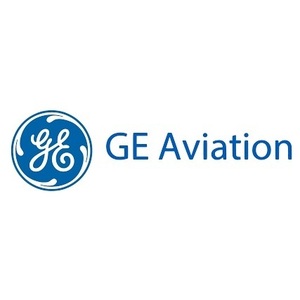GE Aviation completes testing of Passport engine using 100% SAF

May 24, 2022
BY GE Aviation
GE Aviation has recently completed successful testing of its Passport long-range business aviation engine using 100 percent sustainable aviation fuel (SAF), a lower carbon alternative jet fuel.
The Passport engine can operate on approved SAF today, and the recent testing shows the capability of the engine to run on 100 percent SAF. It was the first time the Passport engine was tested with 100 percent SAF.
Currently, SAF approved for use is a blend of petroleum-based Jet A or Jet A-1 fuel and a SAF component with a maximum blend limit of 50 percent. ASTM International, an organization that develops technical standards, has not yet qualified 100 percentSAF. One of GE’s fuel experts chairs an international task force to develop standardized industry specifications supporting adoption of 100 percent drop-in SAF, which does not require blending with conventional jet fuel.
“As our testing shows, the Passport engine, like all GE engines, can operate on approved Sustainable Aviation Fuel today and in the future. Our customers can be confident that the Passportengine can help meet their sustainability goals to reduce CO2 emissions in flight, thanks to the Passport’s more fuel-efficient technologies compared to previous-generation business jet engines and ability to operate on lower-carbon fuels,” said Melvyn Heard, president of the Passport engine program for GE Aviation.
Ground testing was conducted with one engine over several days in March at GE Aviation’s Peebles Test Operations in southern Ohio. The purpose of the test was to assess the performance and operability of the engine technology with 100 percent SAF compared to conventional Jet A.
Advertisement
The type of SAF used in the testing, HEFA-SPK, is the most widely available SAF today and can be made from cooking oil and other waste fats, oils and greases. Preliminary test results of the Passport engine are favorable, with the engine performing similarly to when it runs on petroleum-based jet fuel.
GE Aviation has been actively involved in assessing and qualifying SAF since 2007 and works closely with producers, regulators, and operators to help ensure SAF can be widely adopted for use in aviation. SAF can be made from plant-based material, fats, oils and greases, alcohols, waste streams, captured CO2, and other alternative feedstocks. The use of alternative feedstocks and processes reduces lifecycle CO2 emissions during production, processing, and distribution compared to fossil-based fuels.
This is the latest in a series of 100 percent SAF tests by GE and CFM International, a 50-50 joint company between GE and Safran Aircraft Engines:
•Recently, CFM powered the first passenger flight using 100 percent SAF in one of the two LEAP-1B engines of a Boeing 737 MAX 8 in December 2021, operated by United.
•The Boeing ecoDemonstrator has also tested 100 percent SAF with CFM LEAP-1B engines in 2021.
Advertisement
•The VOLCAN project in France includes a series of engine ground tests and flight tests with the CFM LEAP-1A engine.
•GE Aviation engines powered the industry’s first 100 percent SAF commercial airliner flight in 2018 as part of the Boeing ecoDemonstrator program, which included a Boeing 777F operated by FedEx powered by GE90 engines.
GE’s Passport engine, which entered service in 2018, has 3 percent lower fuel consumption compared to other engines currently operating in the 18,000-pound thrust class and 17 percent lower fuel consumption compared to the CF34-3 engine. Blisk fan blades, a high efficiency compression system, rich-burn combustor, proprietary turbine system, and high efficiency mixer help enable the Passport engine’s improved fuel efficiency.
Related Stories
CountryMark on July 22 celebrated the completion of more than $100 million in upgrades at its refinery in Indiana, including those related to soybean oil storage. The facility produces renewable diesel via coprocessing technology.
ATOBA Energy and Air Moana are partnering to implement scalable solutions for the supply of SAF. The collaboration aims to ensure long-term SAF availability while supporting local initiatives to develop sustainable fuel production in Tahiti.
Neste Corp. on July 24 released second quarter results, reporting record quarterly renewable product sales volumes despite weaker margins. SAF sales were up nearly 80% when compared to the first quarter of 2025.
Valero Energy Corp. on July 24 released second quarter results, reporting a profitable three-month period for its ethanol segment. The renewable diesel segment posted a loss, but the company’s new sustainable aviation fuel (SAF) unit operated well.
The IRS on July 21 published a notice announcing the 2025 calendar-year inflation adjustment factor for the Section 45Z clen fuel production credit. The resulting adjustment boosts maximum the value of the credit by approximately 6%.
Upcoming Events










